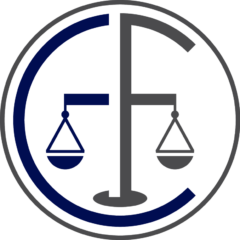In the 1990s, like most states, North Carolina enacted habitual offender statutes (or three strikes or repeat offender statutes). North Carolina has a couple different such statutes. The most important one is the habitual felon statute. The statutes mostly are failures as crime prevention tools.
But they are very harsh. So if you’ve got two felonies, be careful about getting your third. Three felonies – assuming they were committed consecutively after each conviction – qualifies a defendant for habitual felon status.
Here’s how it works. The state can count felonies from other states, or federal felonies (except alcohol-related felonies). The state can only count one felony committed while under the age of 18.
The state can only count felonies for habitual purposes if the each crime happened after the person was convicted of the previous felony. So, for instance, if you committed a felony on January 10, 2010, were arrested on January 20, 2010, were released from custody on January 30, 2010, and committed a second felony on February 15, 2010, and were convicted of the first felony on March 1, 2010, you would only have one felony for habitual purposes, because the second felony was committed before you were convicted of the first felony.
Habitual felon status bumps the punishment from whatever Class it was, to a Class C. The points used for habitual felon status can’t be used to calculate prior record level as well.
What this does is make very low level drug offenses by habitual felons very very harsh penalties indeed. If you’ve been convicted of a series of Class H or Class I drug possession charges, prepare to face a habitual felon charge. The DA will try to use the habitual felon charge to get you to plea to the Class I drug possession charge without having to go to trial. It’s a horrible law, but you should be aware of getting multiple minor drug felony charges.
See the statute:
§ 14-7.1. Persons defined as habitual felons.
Any person who has been convicted of or pled guilty to three felony offenses in any federal court or state court in the United States or combination thereof is declared to be an habitual felon. For the purpose of this Article, a felony offense is defined as an offense which is a felony under the laws of the State or other sovereign wherein a plea of guilty was entered or a conviction was returned regardless of the sentence actually imposed. Provided, however, that federal offenses relating to the manufacture, possession, sale and kindred offenses involving intoxicating liquors shall not be considered felonies for the purposes of this Article. For the purposes of this Article, felonies committed before a person attains the age of 18 years shall not constitute more than one felony. The commission of a second felony shall not fall within the purview of this Article unless it is committed after the conviction of or plea of guilty to the first felony. The commission of a third felony shall not fall within the purview of this Article unless it is committed after the conviction of or plea of guilty to the second felony. Pleas of guilty to or convictions of felony offenses prior to July 6, 1967, shall not be felony offenses within the meaning of this Article. Any felony offense to which a pardon has been extended shall not for the purpose of this Article constitute a felony. The burden of proving such pardon shall rest with the defendant and the State shall not be required to disprove a pardon.



